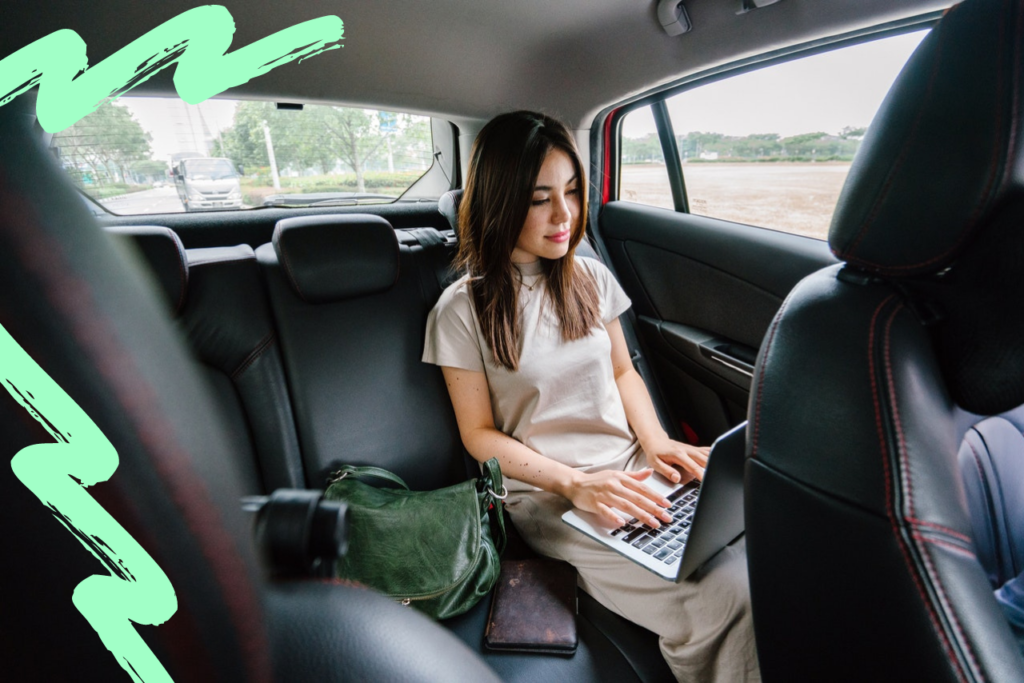2020 saw the biggest drop in business travel spending for decades, with a 61% fall in spending worldwide.
Whilst the reasons for that dramatic decrease are obvious, the future of business travel is less certain. As the Global Business Travel Association reported in November of last year, ‘’Business travel recovery in 2021 proceeded at a slower, more cautionary pace than expected’’.
That said, the GBTA do make some more positive predictions moving forward; they envisage the global business travel industry will make a full recovery by 2024, and be worth a staggering $1.4 trillion by the end of that year.
We should say that such a prediction relies on a fair amount of guesswork, but if you’re looking for some more short term, assured prognoses on the world of business travel, then you’ve come to the right place. To make business travel work for you in 2022, here are some key short term changes to expect.
THE BRAVE NEW WORLD OF THE CORPORATE NOMAD
#WFH… Working from home? Working from holiday, more like!
We’ve all heard of the digital nomad, of ‘bleisure’ and of the staycation. Well, expect to see the next decade of business travel defined by a fusing of those three ideas; all rise, the ‘corporate nomad’.
With frequent, fuel guzzling trips in the name of business travel increasingly frowned upon, and with remote working on an irrepressible rise, professionals across a range of industries are forgoing business travel per se in favour of a ‘workcation’. Expect to see the idea of the ‘corporate nomad’ entering the popular vernacular soon.
Post-pandemic, professionals will increasingly travel to relocate for an extended stay and a prolonged bout of business with foreign partners, as their jobs are no longer tied to a physical location.
Accordingly, it’s likely that AirBnb and other accommodation providers will adapt to suit this demand, offering work/holiday hybrids to cater for the digital and corporate nomad’s globetrotting ways. All of this leads to greater opportunity for the business traveller for exploration and more meaningful working collaborations, both of which sound ideal to us!

TRAVEL LIGHTER THAN EVER
An increasingly diverse set of standard hotel provisions and the rise in amenities and convenience in even the most remote locations has led to business travel requiring a lighter load than ever before.
That’s very welcome news, as packing your luggage for a business trip can be a tricky task, particularly as long-haul business travel is becoming increasingly common. Indeed, what you pack for a one-night stay in London in January is going to be very different to what you should be packing for an extended stay in a serviced apartment in Singapore, but a running theme of luggage trends in 2022 is going to be an increased emphasis on travelling light.
Many business travellers are now opting to buy specialist carry-on luggage to suit their needs, choosing to forgo the necessity of checking-in bigger bags entirely. With the most important items now technological, it looks like laptops, portable chargers, mobile phones and other items key to facilitating easy communication with clients are all taking precedence over a stack of expensive suits and several changes of smart shoes.
Instead, business travellers are choosing a small, travel friendly capsule wardrobe. With just one jacket, one skirt, one pair of trousers, a dress, three tops and a couple pairs of shoes, you can create a whole host of different outfit combinations. Makes sense, don’t you think?

MORE SUSTAINABLE BUSINESS TRAVEL
After the world of business travel experienced a prolonged period of downtime, the whole industry has been given a unique opportunity to re-evaluate just how they do things. Top of the to-do list will be the question of how to re-emerge from this crisis in a nimble and dexterous way, and ultimately, how to approach the new normal of business travel as sustainably as possible.
We all know that business travel’s environmental credentials have a pretty terrible reputation, but the industry is keen to change all that in 2022, and the good news is that for business travellers like you, this will likely spell discounts and bonuses for those keen to do things in a greener way.
Expect smarter, more sustainable business travel in the future because of this. Frequent Flyer rewards are out, Infrequent Flyer loyalty offers look certain to be in. Rather than fewer flights meaning more time spent in the domestic office, it might just mean more of those extended workations we mentioned.
Simple, everyday hacks to the way you conduct your business travelling can help, too. Always carry digital travel documents rather than you having to print copies, behave responsibly in hotels (particularly in terms of bedding and towel reuse), use car-sharing apps and public transport when at your destination, and reduce your plastic waste as you traverse the world. Every little helps!

THE RETURN OF FACE-TO-FACE MEETINGS
The novelty of using Zoom for meetings has well and truly worn off. As such, and certainly at the more executive levels of a company, face-to-face meetings and interactions are likely to take on even greater significance as 2022 progresses.
For business travellers keen to go that extra mile (quite literally), and actually show up for a meeting, project, collaboration or interview in person, the rewards will be rich.
Let’s face it; sometimes, it’s impossible to gain that sense of trust or make that lasting first impression from behind a buffering internet connection. Should you be keen to make a positive impression on a prospective client or collaborator, it might well be worth making the journey!
That shouldn’t mean you’re abandoning those green credentials that you’ve been cultivating throughout this article. Instead, prioritise greener modes of business travel transport, such as cross-continental trains and coaches, and electric cars. Go further, and endeavour to offset your carbon footprint should you need to use a plane.
Arriving at a meeting, face-to-face but environmentally friendly… What better impact could you make than that?





